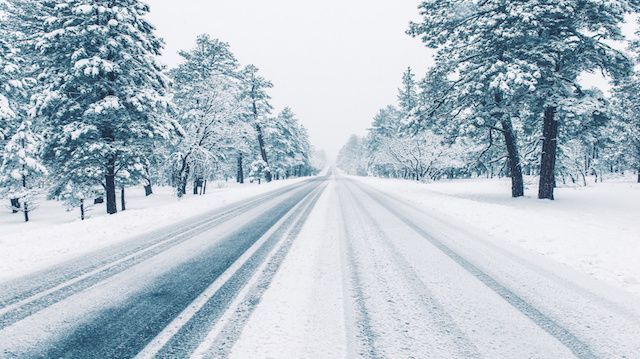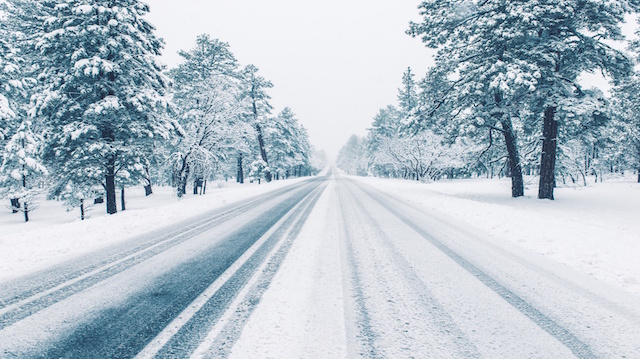
The winter season is attributed with many increased health risks, including slipping on ice, cold and flu infections and frostbite. But there are also many hidden dangers that appear in winter that you may not even realize. These 11 strange dangers of winter may be sneaky, but you can avoid them by taking the steps outlined below.
Holiday decorations
Holiday decorations and scents are beautiful, but they also come with hidden health dangers. A study published in Pediatric Radiology in 2014 found that many foreign bodies are found in the lungs of children during the holiday season, such as glitter, artificial scents and cinnamon.
How to avoid it: Don’t use artificial holiday scents and make sure powders, small glitter particles, and other material that can be inhaled are kept out of your house or handled carefully this winter.
Snow shoveling
This simple chore can have deadly consequences. According to Harvard Health, snow shoveling kills an average of 100 people each year due to shoveling-induced heart attacks.
How to avoid it: If you don’t exercise much and are overweight, or know you have a heart condition, you may want to let someone else shovel your snow this winter. If you want to shovel your own snow, take it slow and shovel light loads so you don’t put too much strain on your muscles and heart.
Carbon monoxide poisoning
Carbon monoxide poisoning kills silently and in a matter of minutes. The Centers for Disease Control and Prevention (CDC) reports that CO poisoning kills an average of 430 people each year.
How to avoid it: Don’t keep your house completely shut up, even in winter. Allow as much fresh air in daily as possible without freezing your toes off. Install CO filters or detectors in your home to protect yourself from leaks. Never run your car in your garage with the garage door closed, and if you have access to your garage from inside your house, you may want to back your car out of the garage a few feet to avoid allowing the fumes to leak into your home.
Air pollution
Air pollution comes from inside sources more than we realize. Smoke (even from candles and wood fires), cooking food, laundry detergent, soap, cleaners, natural gas fumes and other contaminants build up inside your home when the doors are sealed.
How to avoid it: Open your doors daily and allow fresh air in while the sun shines. Run fans, filters and other air-circulating devices to keep air moving and remove air pollution from your home.
Depression
The winter blues strike many, but for some, the blues can lead to a full-blown case of depression. Money trouble, lack of sun exposure, and the stress of family get-togethers can trigger depression for many. Some individuals may be depressed and not even realize it.
How to avoid it: Try to go outside as much as possible when the sun is shining to soak up essential vitamin D from the sun. Supplementing with vitamin D3 in the winter may also help keep depression at bay. For those dealing with seasonal depression, consider purchasing a light designed to treat that condition; sitting under it for 30 minutes daily beginning in September often prevents seasonal symptoms. In your personal life, avoid situations and people that make you feel stressed or depressed, and take time for rejuvenating and centering activities.
Overheating
Winter blankets and a constantly-running heater can quickly cause you to get too hot.
How to avoid it: Use lighter blankets if the heater will be on and take off your coat while indoors. Keep an eye out for children, who may be unable to regulate their own temperature while bundled.
Fire
Candles, indoor fires and more time in the kitchen increase the risk of winter fires.
How to avoid it: Never leave a flame unattended and have your heater and fireplace inspected each year.
Burns
Winter means more heat sources, which increases burn risk.
How to avoid it: Follow manufacturer’s recommendations when using heat sources and keep children away from hot stoves, ovens and other heat sources.
Electrical fire
Use an electric blanket? You could run the risk of starting an electrical fire.
How to avoid it: To prevent the risk of electrical fires, keep your electrical items up-to-date and replace them when they are worn out.
Migraines
Sudden pressure changes can trigger migraines, which are more common during winter months.
 How to avoid it: According to the University of Maryland, individuals who suffer from migraines typically have lower levels of magnesium. Eating more magnesium-rich foods may help prevent pressure-related migraines from occurring.
How to avoid it: According to the University of Maryland, individuals who suffer from migraines typically have lower levels of magnesium. Eating more magnesium-rich foods may help prevent pressure-related migraines from occurring.
Sore throats
Sore throats can be caused by more than flu viruses; they can also be caused by dry air.
How to avoid it: Run a hydrator in your bedroom at night to prevent dry air-related sore throats. Just be careful not to overdo it or you’ll be dealing with mold on your windows or on walls where airflow is limited.
This winter, a little advanced preparation can save you from these hidden winter health dangers.
—The Alternative Daily
Sources:
http://www.ncbi.nlm.nih.gov/pubmed/25274470
http://www.ncbi.nlm.nih.gov/pmc/articles/PMC2958046
http://www.healthdirect.gov.au/winter-health-hazards-at-home
https://umm.edu/health/medical/altmed/condition/migraine-headache

